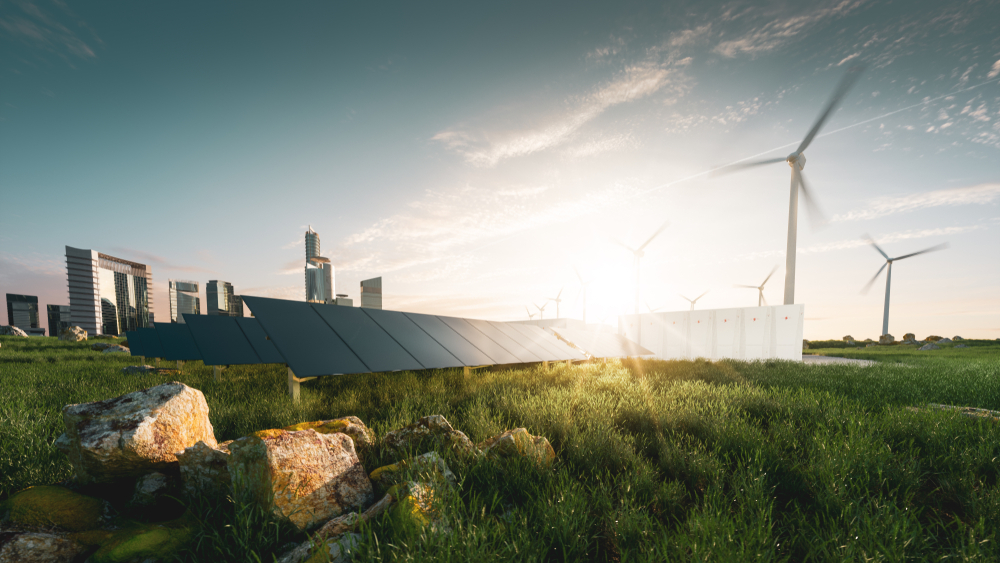What are you focusing on at ADIPEC this year?
At ADIPEC this year, we are promoting a greener future by highlighting digital solutions that can help industrial companies accelerate their energy transition, control their emissions, and drive sustainability. Besides traditional oil and gas companies, we also support clients in the steel, cement, and petrochemical segments. Our focus will be on solutions, starting with the AVEVA Data Hub, our industrial platform that hosts all industrial data, enabling the concept of the “Connected Emirates.”
“Connected Emirates” refers to our plan to begin with the industrial business and invite other verticals and segments to join. The outcome of this will be a centralized place where the Emirates will own the data, which can then be shared with the connected industrial economy.
Our ultimate goal is to present the solution we have developed in collaboration with Schneider – the Ecostruxure power and process offering. This offering will use AVEVA solutions to help design, build, and operate these facilities while combining the power and the process. This is all part of our mission to design and build the future. Additionally, we will showcase our solution, Connected Worker, which helps operations share information and become more effective, driving effectiveness in the energy ecosystem as we work towards our goal to operate and optimize the future.
We have two major offerings that we will showcase at ADIPEC. The first one is our AVEVA Digital Twin technology, which is a high-performance technology that contributes to carbon neutrality, optimises value chains and improves asset performance management for our clients. The second offering is our renowned Unified Operations Center of ADNOC, which provides a 360-degree view of the plant operations. It helps increase visibility on energy sources, consumption, greenhouse gas emissions data, and more. These offerings are crucial to enhancing our clients’ operations’ overall efficiency and sustainability.
Do you see an increased appetite for these green technologies in this region?
We have observed that clients are increasingly walking the talk in terms of taking action to achieve their sustainability goals. Earlier, we talked about the challenges of decarbonizing and reducing emissions, but now we see more and more investment in digital technologies to drive those targets and achieve zero carbon emissions. There are proven cases where digital technologies, especially AVEVA’s offerings, are helping clients achieve their sustainability goals. ADNOC and Aramco are two organisations in the Middle East and Africa region that use AVEVA technology to achieve their sustainability targets, and there are many others in the Middle East and Africa region and outside the region as well.
Can you talk us through these offerings that help these companies optimise resource usage and minimise waste?
AVEVA has diverse offerings catering to oil and gas and renewable power companies. Our digital solutions are unlocking new opportunities and helping to optimise resource usage while minimising waste.
For example, Aker Carbon Capture is a company that designs and builds facilities for carbon-intensive industries such as Siemens and oil and gas and steel manufacturers. They use our technology to create efficient and replicable designs for full carbon capture units. Our cloud-based software enables teams at Aker Carbon to collaborate better, reducing the time needed and increasing efficiency across different time zones. As a result, they’ve been able to increase their operational efficiency by over 60%.
On the other hand, Duke Energy in the United States uses our cloud-based system to gather data, whether it’s the PI or the AVEVA Data Hub on the cloud, to optimize their power operations and resource usage. This technology has led to significant savings of around $34 million through single predictive detection in a compressor. It helps companies become more efficient and profitable by identifying potential problems before they occur.
In the chemical sector, we have a powerful example of how our AVEVA PI System is optimizing resources for Covestro, a leader in the polymers business. They use our AVEVA PI system to optimise their energy usage, leading to a reduction of approximately 40% in their CO2 emissions.
Shifting our focus to the green hydrogen economy and related matters, when do you anticipate this becoming a reality? Will it materialise in the near future, considering the inherent challenges of hydrogen, particularly its storage and transportation complexities?
We are seeing a movement towards green hydrogen in Saudi, UAE, Oman, and other Gulf countries. As you rightly said, the technology is still to be developed; it’s about how you will create that green hydrogen using electrolyzers, renewable energy, and finding ways to store it, such as in ammonia. It is still an expensive form of energy; maybe not everybody can afford it. However, we are seeing investments going on. It is still an expensive energy source and only affordable for some, but investments are being made, such as in carbon capture plans in the UAE. Carbon capture could be a business that the Middle East could take advantage of and create storage facilities, whether deep in the ground or in any other way, shape, or form. And then you can receive carbon, for example, from regions outside the area. This could be a paid service that the local companies can use.
Do you help your customers develop a baseline measurement of their carbon emissions and set targets for reductions as well?
The technologies we use, like the AVEVA PI system, whether on the premises or the cloud, are our tools to help clients capture, store, and analyse data. That data, including carbon emissions, will be part of the big data that we are capturing. Using that as the data infrastructure, we can measure it since it is captured. If you are unable to capture that data, you will not be able to measure it to understand whether you’re going in the right direction against your CO2 emissions or not and ways to optimize this or reduce it. Thus, we have the technology to help the clients.
AVEVA PI system is being used across 70% to 80% of the energy sector and in the oil and gas sector. It’s a very reliable technology to capture data. Then, analytics can be used to understand how the data is progressing. Potentially, we have negative emission monitoring technology that you can model to understand where your emissions would be so you can forecast and take the actions that will help you to reduce your emissions.
And in terms of smart manufacturing, you mentioned digital twins technology. Will all this have a major impact on their sustainability efforts?
A majority of companies are adopting or planning to adopt Smart Manufacturing by utilizing the latest available technologies in the market. For instance, we have seen demand for real-time data capturing through our technology and providing advanced applications. One of the most popular technologies being used is Artificial Intelligence (AI). By incorporating AI into manufacturing processes, it drives sustainability in multiple ways. It enables faster decision-making by 10-20 times, securing millions of dollars in productivity savings and reducing the number of loss incidents in the manufacturing process. We have infused AI into our technologies, including 3D modeling, which can help optimise the engineering cycle and production scheduling technology, whereby schedulers can now do their job 10-20 times faster than before. This has driven efficiency and safety simultaneously. Furthermore, AI is being used effectively in predictive analysis technologies, improving maintenance strategies.










Discussion about this post